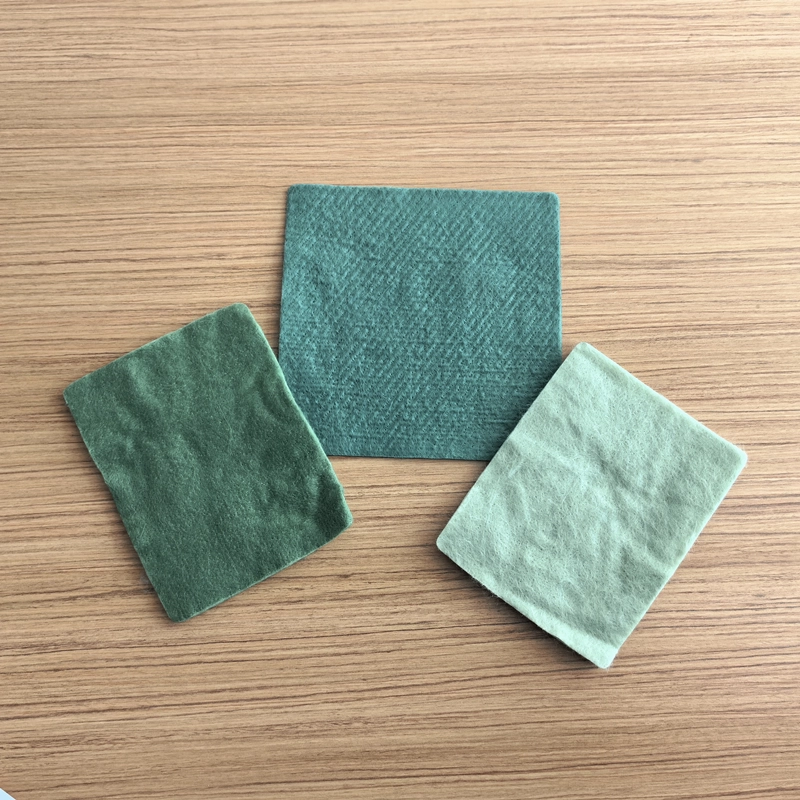Filament Nonwoven Geofabric
Long filament geotextile fabric is a novel geotechnical material made from high-strength polyester filaments through needle punching processes. It possesses excellent properties, including high strength, corrosion resistance, aging resistance, wear resistance, and good water permeability. As a result, it has found wide applications in geotechnical engineering,which serve as drainage,filtration and isolation funtions.
307924.webp)
Production
Step1: Screening and Conveying the slice
The slicing of the airflow of the Roths fans will be sent to the wet sliced tank of the highest roof of the workshop. In this step, if the slices are too small or too big, they will not be selected to send to the wet sliced tank, only the medium size slices will be chose.
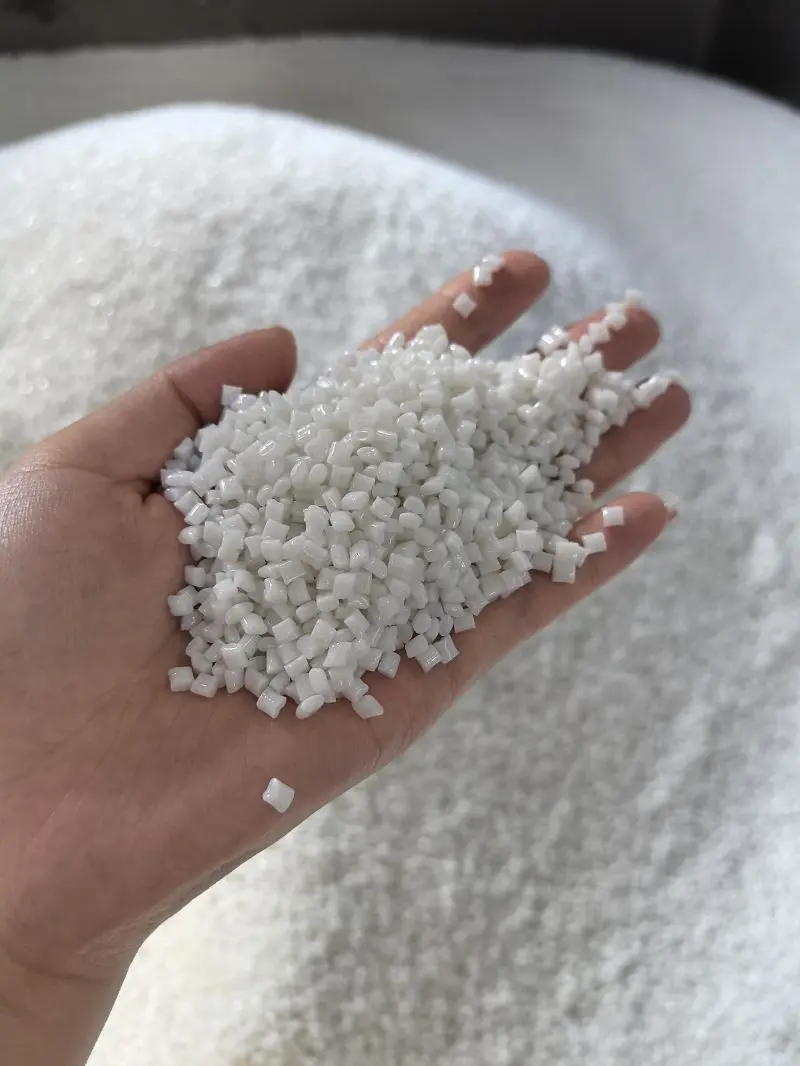
980722.webp)
Step2: Pre-crystallization and Drying
The wet slices are from the rotary and feed valve of the wet slicing tank on the top of the building, and they are quantitatively fell into the pre-crystal bed (boiling bed).
The funtion of a pre-crystal bed is:
1, Dry the slice and remove part of the moisture;
2, Heating and crystallization of wet slices to improve their softening points.
536254.webp)
Step3: Screw Extrusion Melt Spinning
The process involves heating and melting through an extruder, followed by filtration to remove impurities using a pre-filter.
The molten material is then metered and delivered in measured quantities through a metering pump. It enters the spinning assembly, where below the assembly is a spinneret plate.
Upon exiting the spinneret plate, a molten fine stream is formed, which solidifies into primary fibers after cooling.
In this step, we use twin-screw extrusion technology, a novel technique invented by Haoyang Invironmental, and have obtained an invention patent for this technology.
we are the first and only factory use this technology in China.
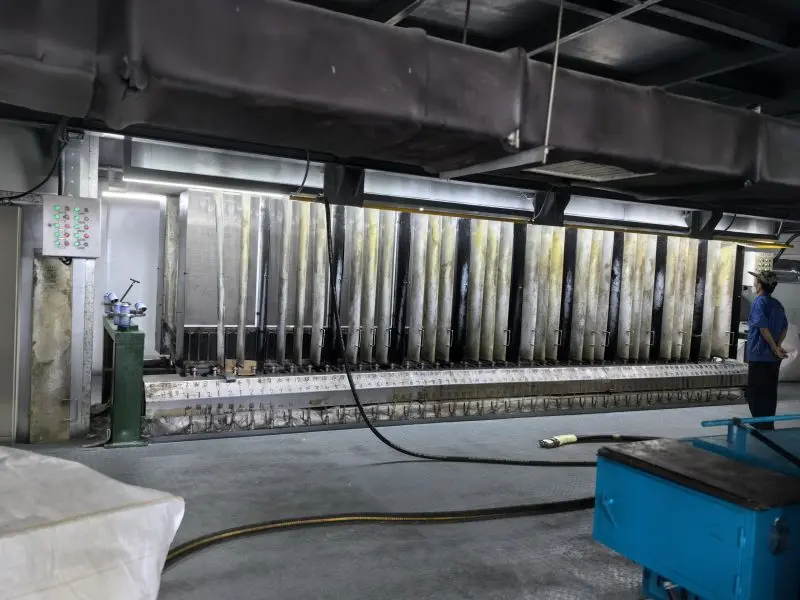
Step4: Airflow Drawing
The strands run through a specialized conduit, where airflow is used to increase the speed of the strands, achieving the purpose of drawing
Issues caused by insufficient drawing:
1,Inadequate fiber drawing leads to reduced tensile strength of the geotextile, compromising its overall strength.
2,During the entry of the web into the pre-needle punching machine, the material may not withstand the stretching, resulting in breakage, web stacking, and potential production stoppage.
977308.webp)
Step5: Swinging the strands to lay the net
After being drawn through the drawing unit in the conduit, the strands pass through a long drawing tube and are lowered onto the swinging mechanism.
Our swinging mechanism is a plate-type swinging structure, where two swinging plates are set at a certain angle, swinging left and right.
This action uniformly lays the strands on the mesh curtain. The mesh curtain moves forward at a certain speed,
feeding the web into the pre-needle punching machine for needle punching
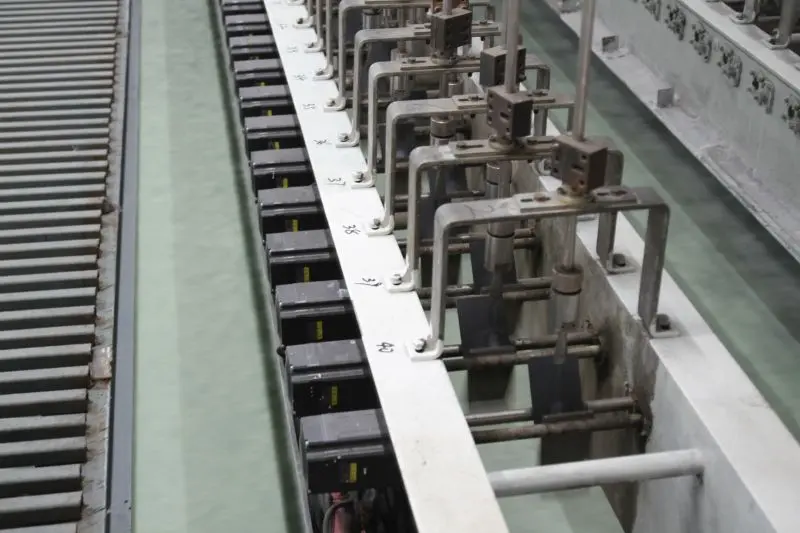
Step6: Pre-Needle Punching and Main Needle Punching
The pre-needle punching machine is a downward-punching type, with needles punching from top to bottom,
while the main needle punching machine operates in an upward-punching fashion, with needles punching from bottom to top.
The needle punching process is employed to transform the fiber web into a fabric.
105536.webp)
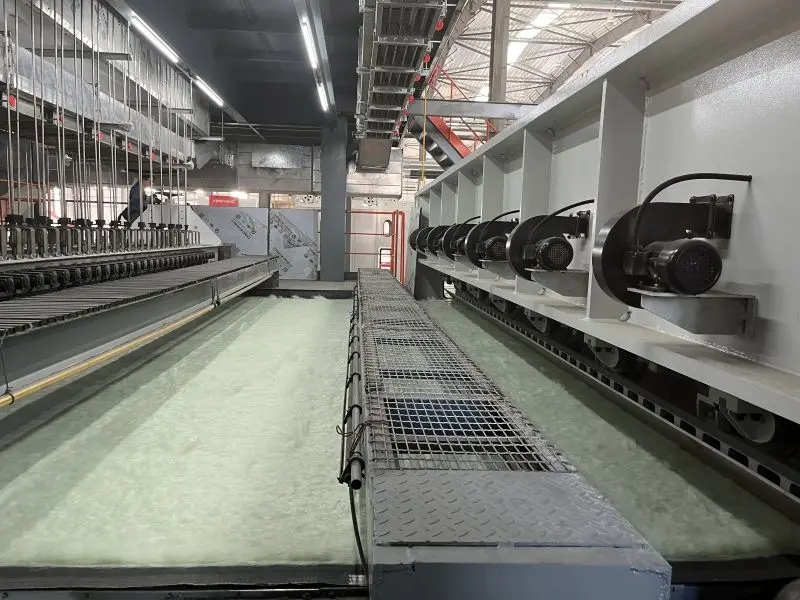
Step7: Fabric Accumulation and Tension Adjustment
The tension frame of the filament production line is composed of nine rollers with a diameter of 150mm each,
and the designed fabric storage capacity is 12 meters.
432510.webp)
Step8: Trimming and Coiling
After passing through a tension frame, the fabric enters a winding machine where the winding mechanism is friction-based.
This means that the movement of the fabric roll is driven by the frictional force between the two rollers underneath the fabric roll.
The winding machine is equipped with one transverse automatic cutting knife and eight longitudinal cutting knives, which operate based on mechanical pressure.
594353.webp)
245265.webp)
Product Features
1, High Strength: Filament fabric exhibits high strength.
2, UV Resistance: It possesses extremely high resistance to ultraviolet (UV) radiation.
3, High-Temperature Resistance: Withstands temperatures up to 230°C, maintaining structural integrity and original physical properties even under high temperatures.
4, Permeability and Planar Drainage: The geotextile fabric, being thick and needle-punched, demonstrates excellent planar drainage and vertical permeability, maintaining these properties even after many years.
5, Creep Resistance: filament geotextile fabric has superior resistance to creep compared to other geotextiles, ensuring long-term effectiveness. It withstands erosion by common chemicals in the soil and is resistant to corrosive substances such as gasoline and diesel.
6, Elongation: The fabric has good elongation at a certain stress level, allowing it to adapt to irregular surfaces with uneven terrain.
Applications
1. Seepage Prevention Projects:
Long filament geotextile fabric exhibits excellent seepage resistance, making it suitable for various seepage prevention projects. It can be employed in water conservation projects such as reservoirs, dams, channels, and water gates to prevent seepage. Additionally, it is used in environmental projects for seepage prevention in landfill sites and hazardous waste treatment areas. In construction projects, it aids in preventing seepage in basements, tunnels, and subways, effectively blocking the infiltration of water, oil, gas, and ensuring the safety and stability of the structures.
2. Reinforcement Projects:
With its high strength and stiffness, long filament geotextile fabric is applicable in a variety of reinforcement projects. It can be used to reinforce road engineering structures like roadbeds, road surfaces, bridges, as well as in railway projects for the reinforcement of embankments, bridges, and tunnels. In water conservation projects, it contributes to the reinforcement of dams, channels, and water gates. The fabric effectively enhances the load-bearing capacity and seismic resistance of structures, improving their safety and stability.
3. Filtration Projects:
Long filament geotextile fabric's superior filtration performance makes it suitable for various filtration projects. It is employed in water conservation projects for filtration in reservoirs, dams, channels, and water gates. In environmental projects, it is used for filtration in landfill sites and hazardous waste treatment areas. Additionally, in construction projects, it aids in filtration in basements, tunnels, and subways, effectively removing impurities and pollutants, ensuring water quality and environmental hygiene.
4. Slope Protection Projects:
Due to its excellent impact resistance and erosion resistance, long filament geotextile fabric is employed in various slope protection projects. This includes slope protection in road engineering structures such as roadbeds, road surfaces, and bridges, as well as in railway projects for embankment, bridge, and tunnel slope protection. In water conservation projects, it contributes to slope protection in dams, channels, and water gates. The fabric effectively prevents soil erosion, safeguarding the stability and safety of the structures.
Company Advantages
Expertise and Innovation: Established in 2008, Haoyang Environmental Co., Ltd. is a high-tech comprehensive service provider with extensive experience in geosynthetic material R&D, manufacturing, and environmental engineering.
Certified Quality: We are certified under ISO 9001, ISO 14001, and OHSAS 18001, and have received CQC environmental product certification, ensuring that our products meet the highest standards of quality, environmental management, and occupational health and safety.
Recognized Excellence: Designated as the "Shandong Enterprise Technology Center" and the "Environmental Protection New Materials Engineering Laboratory," our company is recognized for its technological advancements and contributions to environmental protection.
Innovative Patents: With three invention patents, 32 utility model patents, and two provincial-level scientific and technological achievement certifications, we are at the forefront of innovation in environmental engineering materials and technologies.
Professional R&D Team: Our dedicated technical R&D team focuses on the continuous improvement of environmental engineering design, consulting, and the development of cutting-edge environmental pollution control and hazardous waste treatment technologies.
Contact Us
Discover the advantages of Haoyang’s Filament Needle Punched Geofabric for your next project. Our expert team is ready to provide you with the best solutions tailored to your specific needs.
Partner with Haoyang Environmental Co., Ltd. for innovative, high-quality geosynthetic solutions that drive sustainable progress and environmental stewardship.
FAQ
1: What is filament needle punched geofabric, and how does it work in geotechnical applications?
Filament needle punched geofabric is a geotechnical material made from high-strength polyester filaments using a needle punching process.
It serves various functions such as drainage, filtration, and isolation in geotechnical projects. The fabric's structure allows it to effectively manage water flow,
filter impurities, and provide isolation between different soil layers.
2: In what geotechnical projects can filament needle punched geofabric be used for drainage purposes?
Filament needle punched geofabric is highly effective in drainage applications.
It can be utilized in water conservation projects, including reservoirs, dams, channels, and water gates, to facilitate water drainage and prevent seepage, ensuring the stability and safety of the structures.
3: How does filament needle punched geofabric contribute to soil stabilization in construction projects?
The high strength and stiffness of filament needle punched geofabric make it suitable for soil stabilization.
In construction projects such as road engineering, railways, and water conservation, the fabric enhances the load-bearing capacity of the soil, contributing to the overall stability and seismic resistance of the structures.
4: Can filament needle punched geofabric effectively filter impurities and pollutants in water conservation projects?
Yes, filament needle punched geofabric possesses excellent filtration capabilities.
In water conservation projects like reservoirs, dams, and channels, the fabric acts as a reliable filter, removing impurities and pollutants from the water, ensuring clean water quality and environmental hygiene.
5: How does filament needle punched geofabric provide isolation in geotechnical projects, and where is it commonly applied for this purpose?
Filament needle punched geofabric offers effective isolation between different soil layers, preventing the loss of original performance due to mixed granular materials.
It is commonly applied in various construction projects, including water conservation, environmental protection, and building construction, where different soil layers need to be isolated to maintain their individual properties.
752.webp)
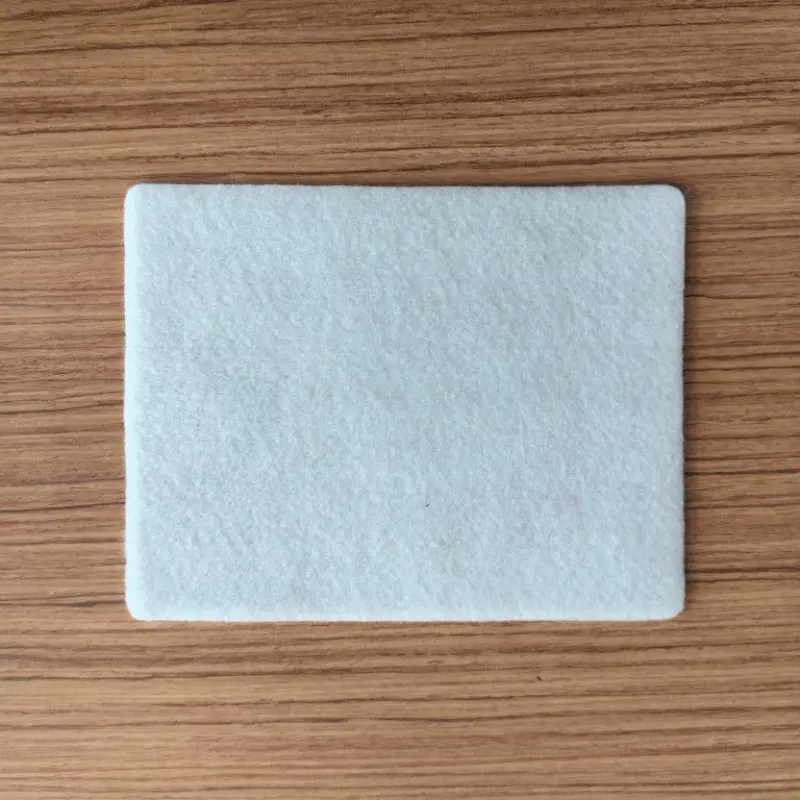
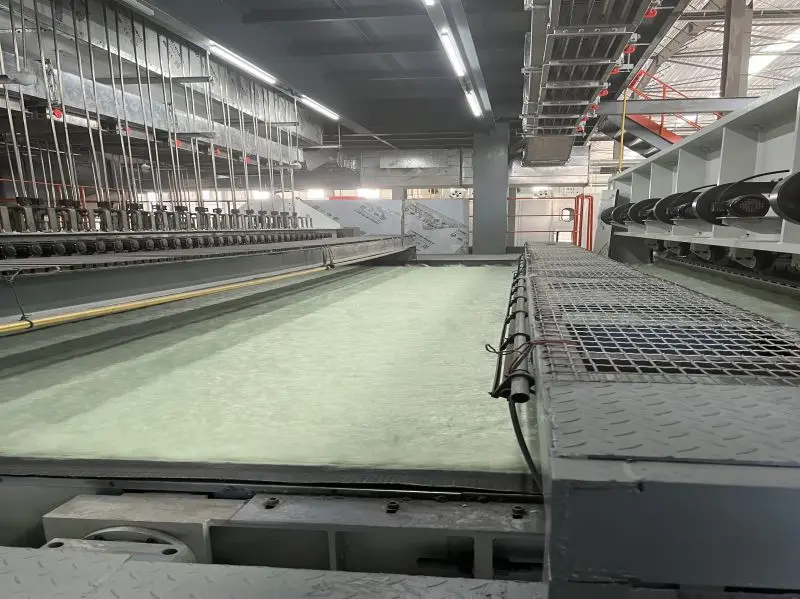
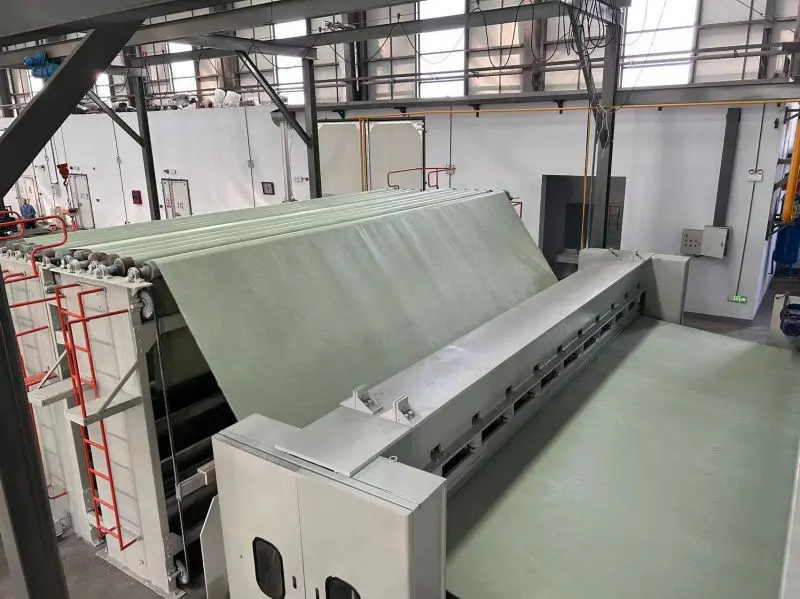
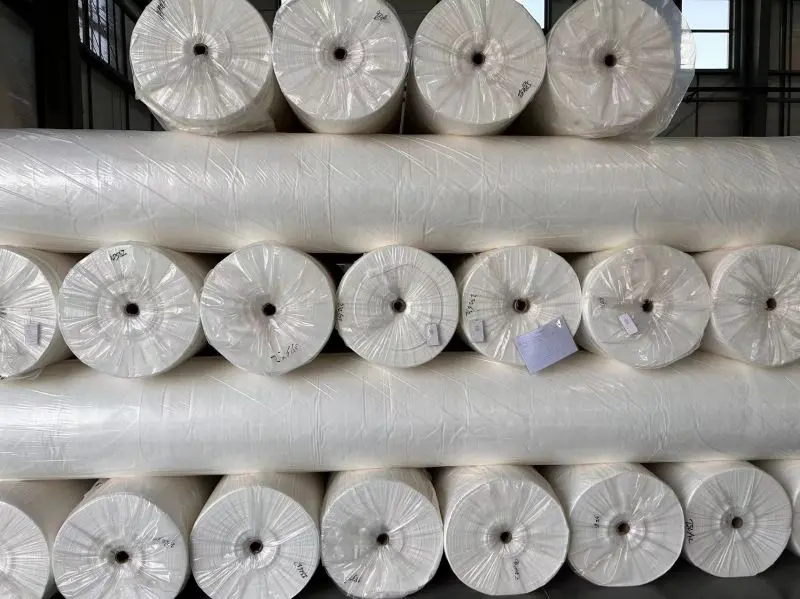
503.webp)
759.webp)
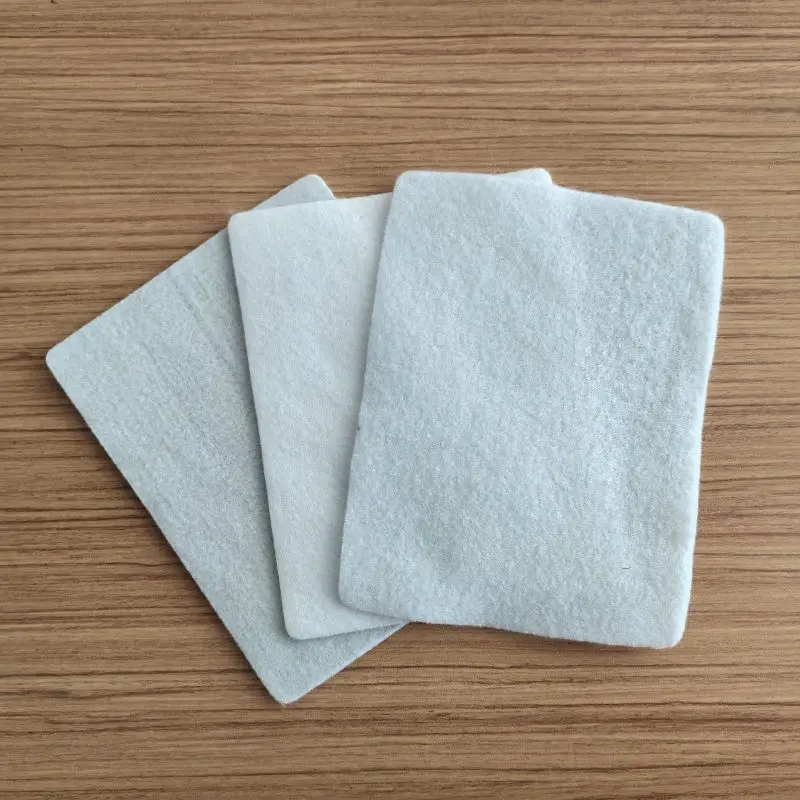
861.webp)
